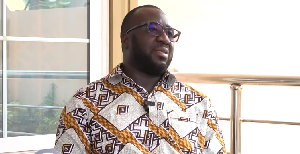Research Associate at the African Leadership Centre, Dr. Kafui Tsekpo, has warned of an anticipated surge in misinformation during Ghana's upcoming election cycle.
In a recent interview with GhanaWeb's Mawuli Ahorlumegah, he highlighted the critical role misinformation plays in shaping voter perceptions and the potential impact on the integrity of the electoral process.
Dr. Tsekpo explained that misinformation has always been a part of elections, often used as propaganda to influence public opinion.
However, with the advent of social media, the spread of false information has become more pervasive and challenging to control.
“Given the age of social media, misinformation can happen or does happen in terms of how politicians and political actors going into the elections would want to change the minds of voters, and would want to influence how voters perceive a particular candidate or other,” he said.
He emphasised that the upcoming elections are particularly high-stakes, and the 48 hours before and after the polls are likely to see a significant increase in misinformation.
"There is misinformation going on. And especially with the high stakes regarding this particular election, it's going to be even worse, especially in the 48 hours before and after the election, that is, to the polls, and then the 48 hours while we are waiting for results to come through.
“All these things are going to come out because people are going to churn out all manner of information out there seeking to either elicit the attention of voters or the general public cut their disaffection or affection for one party or the other. And for me, this doesn't contend well for the integrity of our elections and electoral processes," Dr. Tsekpo stated.
Dr. Tsekpo also pointed out the limitations of fact-checking, noting that it is not foolproof.
“I always tell people that fact-checking is not foolproof in itself in the sense that how many people would have seen that and formed a decision about it? There is no guarantee that the same crop of persons who saw that misinformation would see them, how do you call it, the fact-checked version and use that to correct whatever impression they might have formed out of that, which means that the damage would have already been done,” he added.
Dr. Tsekpo called for greater vigilance and critical thinking among voters to combat the spread of misinformation and protect the democratic process in Ghana.
Watch the video below:
ID/MA
General News of Sunday, 1 December 2024
Source: www.ghanaweb.com
Misinformation will be worse in the 48-hours before and after elections - Expert warns
Entertainment












